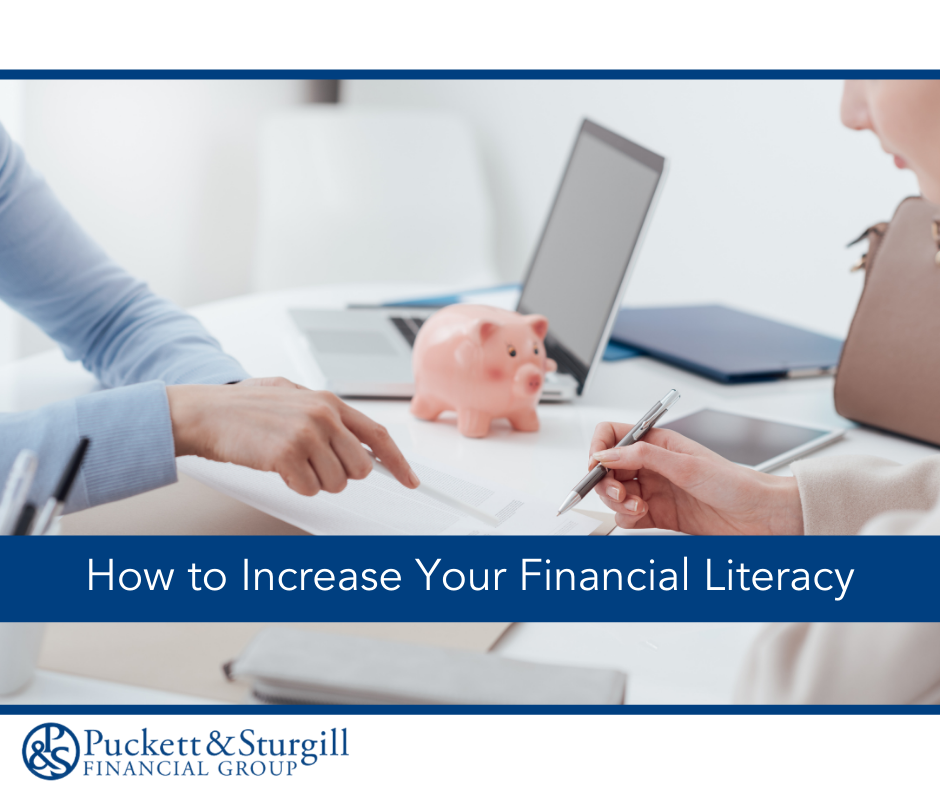How to Increase Your Financial Literacy

Unlike verbal literacy, financial literacy isn’t often taught in schools—which means that many people may enter adulthood without having all the tools they need to make informed and effective financial decisions.[1] Fortunately, gaining financial literacy doesn’t need to be a long or complicated process. Read on for three simple things you can do to work toward increasing your financial literacy.
Subscribe to Reputable Financial Publications and Newsletters
As with just about any topic, the more you read about investing, budgeting, and analyzing financial strategies, the larger your base of knowledge will be. A strong knowledge base in a particular subject can make it easier to make wise decisions in the future—you should already have a good feel for the “do’s” and “don’ts” of certain financial questions.
There are a variety of high-quality financial publications, newsletters, and daily digests that can be emailed to you for free. You can also opt to become a paying member of one or more financial websites in order to get advice that’s better tailored to your interests and goals.
Manage Your Assets and Debts
Financial literacy doesn’t exist in a vacuum—in other words, the purpose of increasing your financial literacy is to put yourself in a position to make better financial decisions. Two key parts of this include:
- Putting your assets to their highest and best use; and
- Reducing your debts and minimizing your “burn rate.”
Investing in the stock market is often a key component of the first prong. Although the stock market is more volatile and less “safe” than cash, each dollar you invest now, at a modest six percent rate of return, will grow to $5.74 in 30 years.1 By putting even a small amount aside and adding to it as you can, you’ll have a better chance of building a larger nest egg over time; and the younger you are when you start investing, the more potential your funds have to grow.
For the second prong, if you’re dealing with high debt rates or high-interest debt, there are a few things to reduce the amount you pay each month. Refinancing loans, transferring high-interest balances to a zero-percent-interest credit card, or pursuing debt forgiveness or consolidation options can all help minimize your interest payments.[2]
While some interest can be inevitable—for example, very few people have the cash they need to buy an entire house—each penny you pay in interest is a penny you can’t put toward other goals, so reducing your interest to the lowest possible rates can free up cash for other expenses.
Talk to a Financial Professional
Many people find that, as they age, their finances tend to become more complicated. Others worry that they won’t have enough saved to retire on their schedule and wonder whether their investments should be yielding a better rate of return. In either situation, a financial professional can help you identify your goals and map out the appropriate path to get there.
Financial professionals can work with you on debt management, investment, retirement, and more short-term goals (like paying for a child’s college or buying a new house). By having a financial professional in your corner, you’ll also have an objective person with whom to share ideas and explore potential paths, giving you a good sounding board for your goals.
Important Disclosures:
The opinions voiced in this material are for general information only and are not intended to provide specific advice or recommendations for any individual. To determine which investment(s) may be appropriate for you, consult your financial professional prior to investing. All performance referenced is historical and is no guarantee of future results. All indices are unmanaged and cannot be invested into directly.
Investing involves risks including possible loss of principal. No investment strategy or risk management technique can guarantee return or eliminate risk in all market environments.
All information is believed to be from reliable sources; however LPL Financial makes no representation as to its completeness or accuracy.
1 https://www.nerdwallet.com/blog/investing/investment-calculator/
LPL Tracking 01-05103515
[1] https://www.marketwatch.com/story/want-to-develop-financially-capable-americans-teachers-may-be-even-more-important-than-laws-2019-09-20
[2] https://www.investor.gov/introduction-investing/investing-basics/save-and-invest/pay-credit-cards-or-other-high-interest


